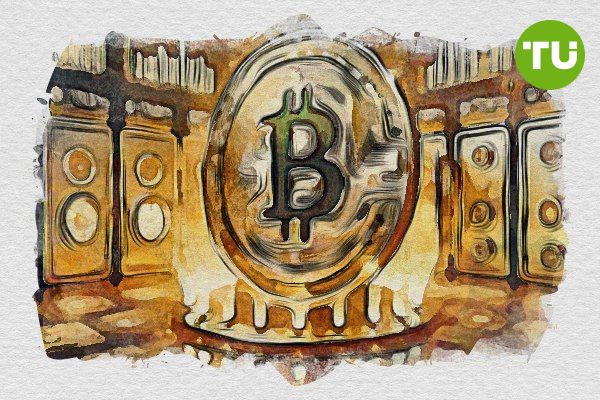Bitcoin reserves: From companies to governments
 Why are Bitcoin reserves being created
Why are Bitcoin reserves being created
The idea of Bitcoin reserves—using cryptocurrency as a strategic asset—is gaining popularity among private companies and governments alike.
Satoshi Nakamoto, the creator of Bitcoin, initially envisioned the cryptocurrency as a tool to protect against inflation and the instability of traditional currencies. However, the practical implementation of Bitcoin reserves only began years later.
A major turning point was MicroStrategy's decision in 2020 to invest over $1 billion in Bitcoin. Within a few months, the company acquired more than 70,000 BTC.
Following MicroStrategy's lead, companies like Tesla and Square started adding cryptocurrency to their balance sheets.
Loading...
Bitcoin has demonstrated its effectiveness for many years. The cryptocurrency network launched in 2009 and has repeatedly ranked as one of the most profitable assets.
Since the beginning of 2024 alone, Bitcoin has surged by more than 150%. Today, BTC is ranked seventh among the most capitalized assets globally. Gold, which holds the top spot, has risen only 36% in the same period.
MARA Holdings initiative
Fred Thiel, CEO of MARA Holdings, recently unveiled an ambitious plan to introduce a Strategic Bitcoin Reserve (SBR) across all 50 U.S. states. The plan envisions Bitcoin's adoption at both state and federal levels.
Thiel stated that the SBR would represent a significant step toward financial independence, protecting the economy from inflation and global economic crises.
Loading...
This initiative was supported by Jason Browder, Senior Vice President for Government Relations at MARA Holdings, who emphasized the company's active collaboration with government organizations, including the Trump administration, to accelerate implementation.
Browder also announced that 11 states, including Florida, Alabama, Utah, Wyoming, and Massachusetts, have already introduced legislation to establish an SBR.
Supporters of the idea, such as Coinbase CEO Brian Armstrong, praised the strategy. Armstrong suggested that countries holding gold reserves should also consider Bitcoin as a strategic asset for diversification. He believes that adopting the SBR in the U.S. would encourage other G20 nations to integrate cryptocurrency into their financial systems.
Why Bitcoin reserves are important for companies
Bitcoin, with its limited supply of 21 million coins, is an attractive tool for preserving value in an era of increasing money supply. Unlike gold or fiat currencies, Bitcoin is not tied to any government institutions or the economy of a specific country, making it more resilient to political risks.
Moreover, companies holding Bitcoin reserves can reduce their dependence on global financial systems controlled by central banks.
Why governments need Bitcoin reserves
Initiatives like the MARA Holdings proposal indicate that Bitcoin is being viewed not only as a private asset but also as a potential element of national economic strategy. Diversifying reserves with Bitcoin can protect countries from sharp fluctuations in traditional currency values. Additionally, government support for cryptocurrency creates favorable conditions for tech startups and investors.
However, some countries oppose Bitcoin adoption, fearing a loss of economic control. For instance, China has banned cryptocurrency mining and trading, citing threats to financial stability. India has also considered a complete ban on cryptocurrencies, citing risks to its monetary system.
Donald Trump's policy and Bitcoin reserves
The U.S., as one of the world's leading economies, could play a pivotal role in shaping a global approach to using Bitcoin as a strategic reserve. President Donald Trump, previously known for his skepticism toward Bitcoin, is now associated with one of the most ambitious initiatives to create strategic crypto reserves in the U.S.
In the past, Trump labeled Bitcoin a "scam" and expressed concerns about its threat to the U.S. dollar as the global reserve currency. However, facing new economic challenges such as rising inflation and increasing competition from China, his administration has shifted its stance on cryptocurrencies.
Trump now views Bitcoin as a potential tool for strengthening U.S. financial independence. The creation of strategic reserves is intended not only to shield the U.S. economy from global crises, but also to solidify the nation's leadership in the technological race.
Critics argue, however, that the mass inclusion of Bitcoin in state reserves undermines decentralization principles. Moreover, it risks increasing government influence over the cryptocurrency market, contradicting Bitcoin's original ethos of free and independent use.
Potential implications
If Bitcoin is widely adopted as a reserve asset by governments, it could transform the global financial landscape. Its status as "digital gold" would be further solidified, and its limited supply could drive price increases.
Bitcoin reserves are not just a trend but a new milestone in the evolution of the global economy. They offer opportunities for financial stability, technological advancement, and innovation. However, for this tool to become widespread, numerous barriers—ranging from volatility to regulatory risks—must be overcome.
The future of Bitcoin reserves depends on whether governments and companies can find a balance between the risks and opportunities presented by cryptocurrency.













































































































































